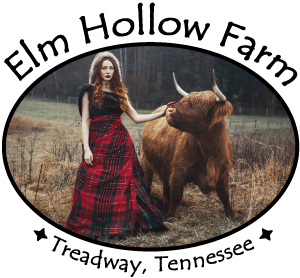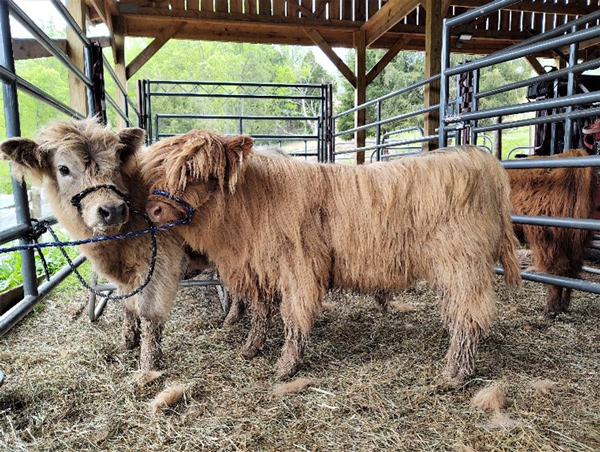– Halter Training –
– Planning for Highlands –
– Preview our New Calves –
Farm Visits Update
COVID, what can I say? It is still here, it is still dangerous, and it isn’t going away. We are thankful that we have been vaccinated, and we hope you are protected as well. Meantime maintaining social distance will remain our policy, and we are open for visitors. We will also don our masks if we are in the calf training facility and want to get close to look at the calves.
Let the Halter Training Begin
This year, our first halter training class will begin on or about May 10. The class roster will be: Jana, Justice, Joshua, Jolene, and Jaxon. Class 2 will begin Some time during the last week of May and the members will be all heifers!! Jetta, Jewel, Jaffa, Jubilee and Janie.
Class 3 in middle to late May is mostly boys, but one little girl will have to put up with the shenanigans of those little bulls. The roster is as follows: Jamari, Jupiter, Jaunty Lad, Journey and little miss Jazelle. Then we will have summer break and school will be in recess until mid August when a small class will convene for King, Katie Sue, and Koko.
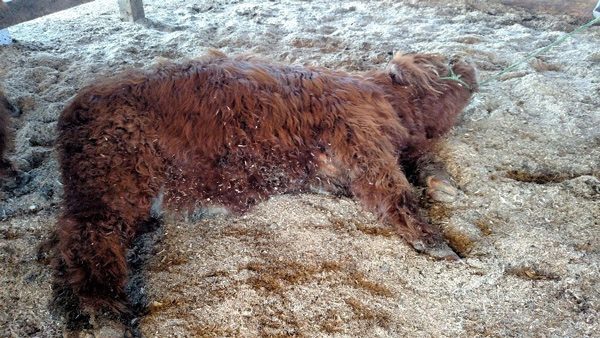
It is always fun to see how each calf reacts to this new phase of life. Some throw temper tantrums and just refuse to cooperate. Those usually end up being the sweetest of the youngsters by the end of training.
It is always easier with a buddy to give you courage, and that first grooming feels really good!
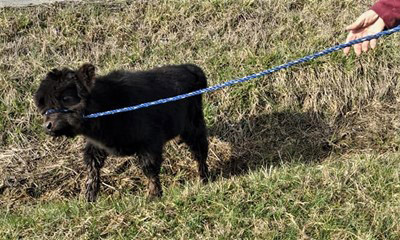
Mini Lesson: Planning for Highlands
Planning ahead for your first adventure into the world of Highland Coos?
Those pictures of cute cuddly calves are very enticing. They are also very deceiving. We work hard here to avoid the crisis of “Christmas Puppy Syndrome” or “Easter Bunny Disaster.” These cute baby cows do grow up.
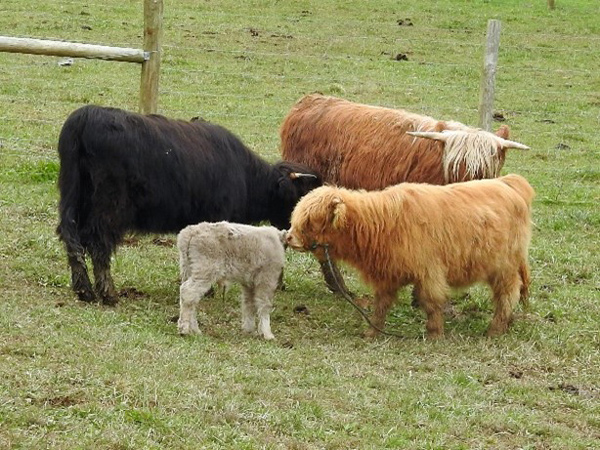
Companionship is not just desirable, it is imperative. Cows (any breed) are herd animals. Without a companion they will do anything they possibly can to seek company of their own kind. Fences may not contain them if they are lonely, and if the fence is strong enough to keep them in solitary confinement, rest assured their behavior will change.
If they imprint on you as a herd companion, their behavior may feel aggressive to you. They just want love.
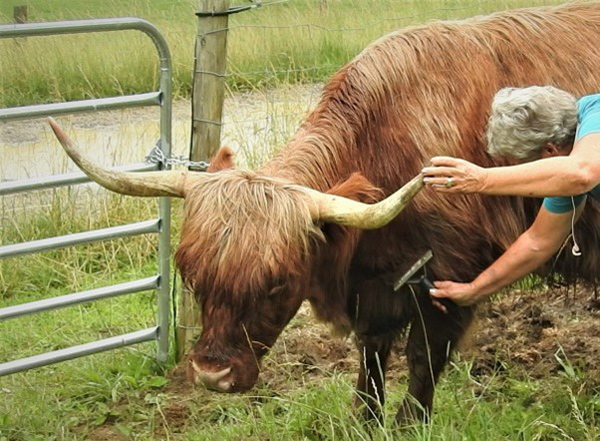
Highlands do grow horns – big horns. If horns make you nervous you need to look at a hornless breed.
Highlands have horns to regulate body temperature and if they are removed, you can cause serious health issues. Horns are a characteristic of this ancient breed. They use horns to forage for food, for protection from predators, and for establishing the social order of the fold. Highlands are very much aware of exactly where their horns are and they will only use them if they feel threatened.
The removal of horns will cause an undesirable change in behavior. You must learn to be aware of horns as well, always be alert and aware of what is going on that might cause sudden movement. Know your cow’s temperament and respect it.
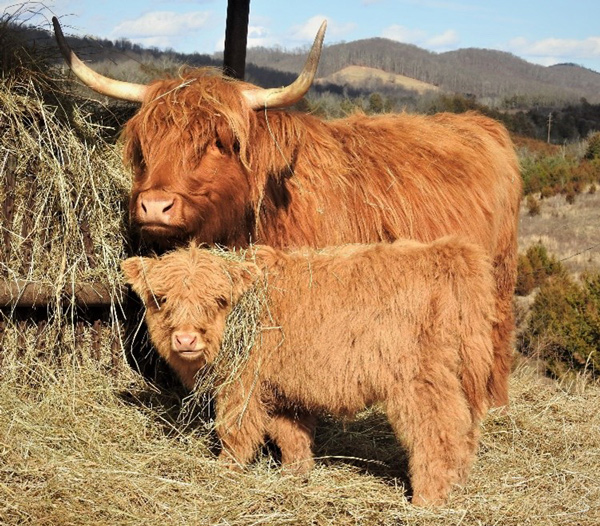
Cows (any breed) will consume about 2% of their body weight each day. Translation: an average size adult cow will need about 30# of hay each day which is ½ of a square bale.
If you feed round bales, that calculation will need to be made according to the size of the bale. There is much less waste in feeding square bales if you only have a couple of cows, but if you have several, round bales are much easier to feed.
Cows also need supplement nutrition which means you need to provide the proper mineral supplements for your area. Discuss this with your extension agent and/or your large animal vet. Don’t have a vet? Don’t get a cow. Failure to provide the correct supplements can lead to illness and even death.
Summer weather is hard on Highlands. You must provide shade and plenty of fresh clean water. Tree shade is cooler than the shade of a building. Some people set up misters, but we have trees and one barn with fans.
Summer also brings flies, so plan a fly control program. Flies can cause pink eye. Caught early, you can deal with it yourself, but if you don’t catch it at the start, you will need your vet. You’ll also need a way to contain your cows so the vet can treat them.
Finally, each cow can produce about 50-80 # of poop every day. Be sure you are ready to deal with all that free fertilizer!!
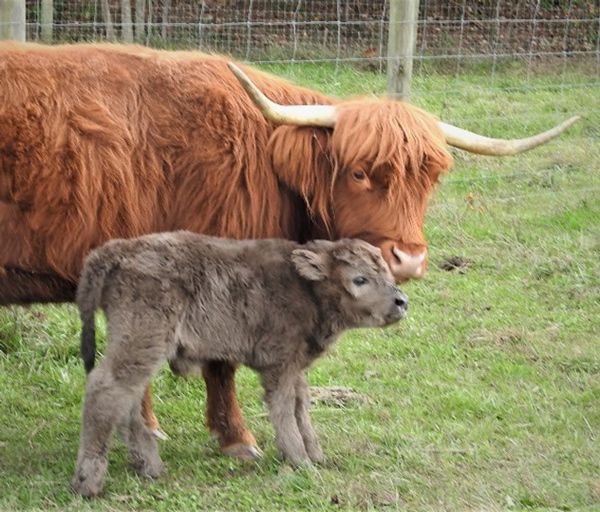
Calf Crop Preview
If you’re sure you can meet the needs of a grown up Highland and you want to look at some cute calves, visit the website pages with this years crop.
